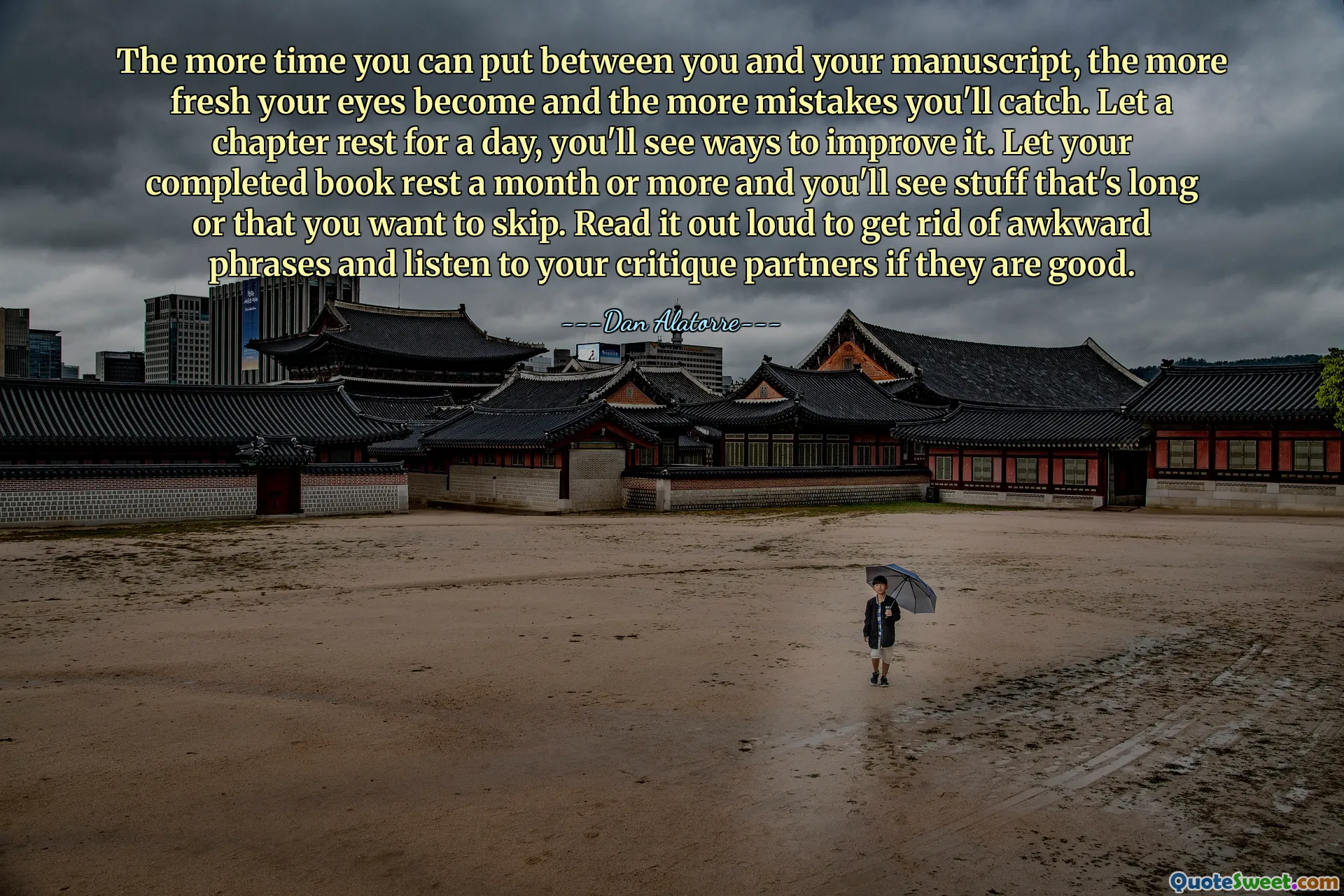
The more time you can put between you and your manuscript, the more fresh your eyes become and the more mistakes you'll catch. Let a chapter rest for a day, you'll see ways to improve it. Let your completed book rest a month or more and you'll see stuff that's long or that you want to skip. Read it out loud to get rid of awkward phrases and listen to your critique partners if they are good.
This quote highlights the importance of patience and deliberate pacing in the writing and editing process. Taking breaks between writing, editing, and finalizing your manuscript allows your subconscious to work in the background, providing a fresh perspective when you revisit your work. Resting a chapter for a day can illuminate areas that need tightening or clarification, while letting your entire book sit for a longer period helps identify larger structural issues or redundant sections that may have seemed fine initially. The practice of reading aloud is a time-tested technique that makes it easier to catch awkward phrasing, inconsistent dialogue, or rhythmic issues that silent reading might overlook. Listening to critique partners offers a valuable outside perspective, especially from those experienced enough to give constructive feedback. Overall, this advice emphasizes the value of distance—both temporal and from the work itself—as a tool for revision and improvement. Writers often get caught up in their words, losing sight of the overall flow, clarity, and engagement. Stepping back, whether for a day or more, cultivates objectivity and allows writers to approach their work with sharper eyes and ears, ultimately leading to a better, more polished final product.










